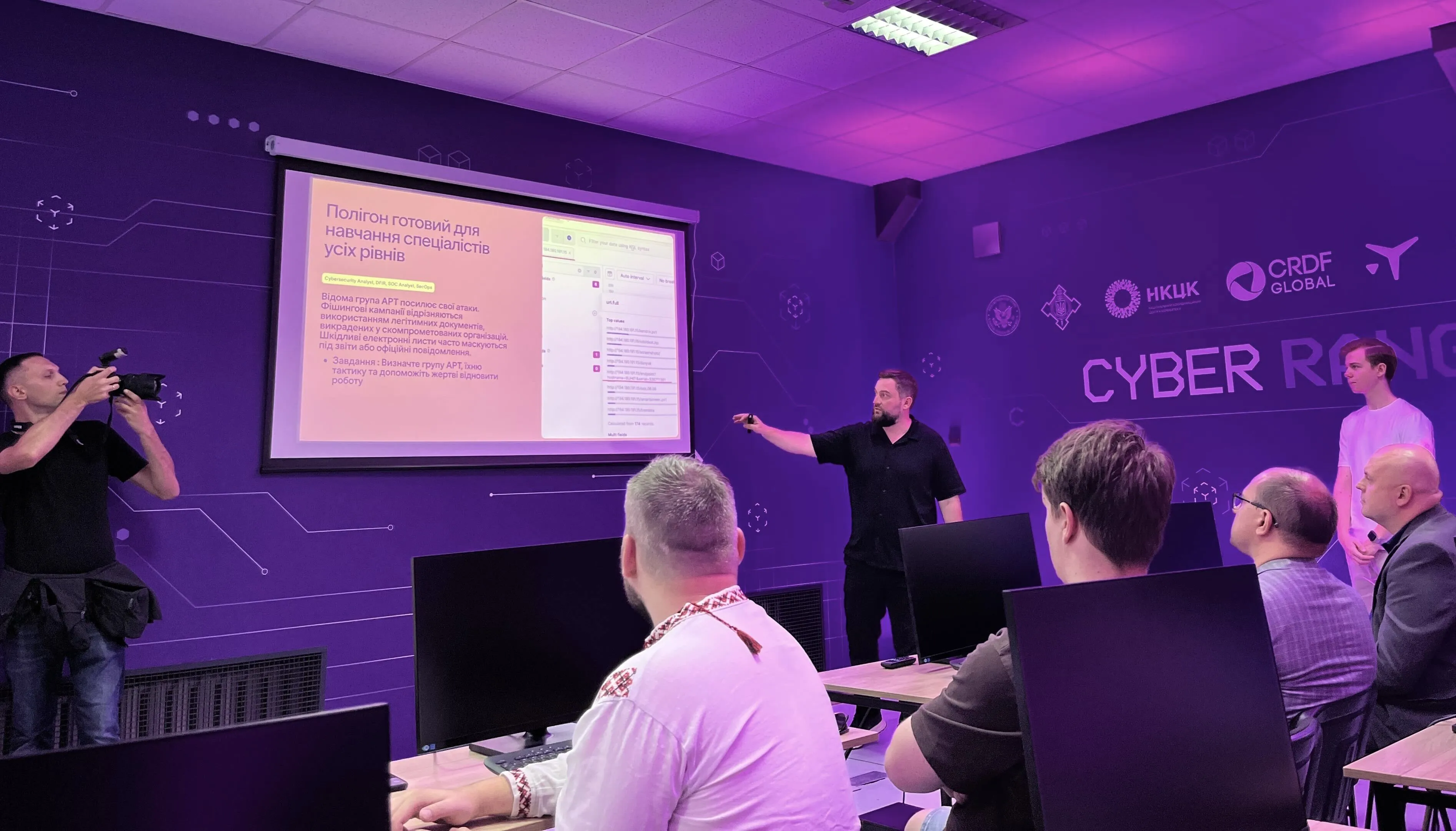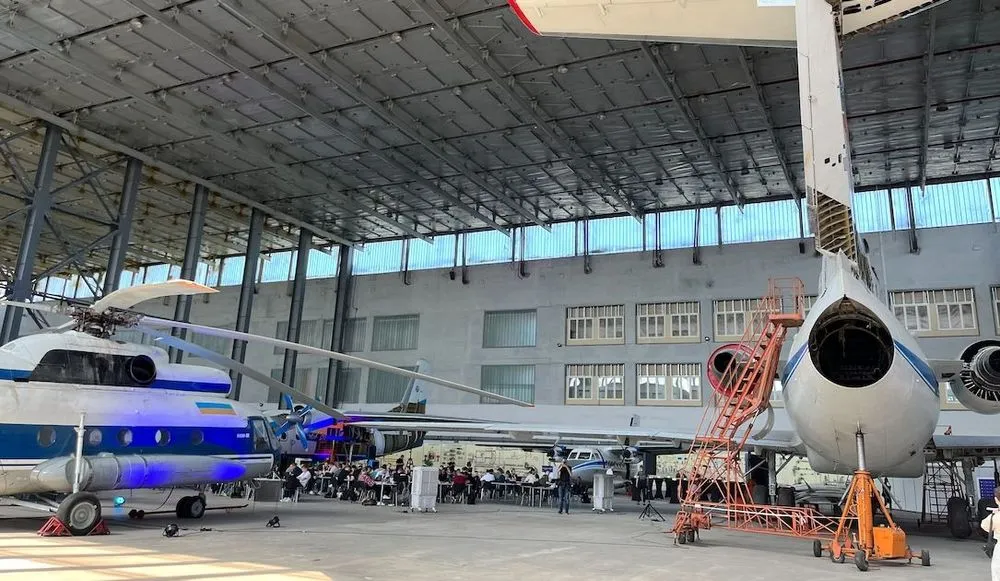In a Kyiv hangar, Ukraine launches a cyber range for everyone
KYIV, UKRAINE — An old concrete and metal hangar in western Kyiv typically serves as an exhibition space for the National Aviation University, showcasing retired Ukrainian aircraft, from the renowned Soviet-era Antonov An-24 passenger airliner to the Mil Mi-4 helicopter designed in the 1950s.
Last week, however, the typical eerie quiet of the building was disrupted by the rhythmic clacking of keyboards, a subtle soundtrack of lo-fi beats, and the occasional clink of Red Bull cans scattered throughout the space.
Underneath the aircraft wings, 15 teams — each comprising five cyber experts from military and intelligence agencies — gathered to practice defending against Russian cyberattacks and launching counterattacks. A large screen at the front of the room displayed a dashboard tracking the progress of each team.
The exercise was based on real Russian cyberattacks against Ukraine, including those carried out by state-controlled groups, said Yehor Aushev, a Ukrainian cyber entrepreneur and the mastermind behind the project, called Cyber Range.
For Ukraine, the program is unique: It’s free and open to a broad range of citizens, including students, researchers, state officials and employees of critical infrastructure facilities. The event for military and intelligence-agency personnel was preceded a day before by a session for students. Similar training programs in Ukraine — such as those offered by cybersecurity companies — have tightly limited participation.
To join the Cyber Range, potential participants must send an official request to the organizers, who select them based on various criteria, including their trustworthiness, Aushev said.

Yegor Aushev, one of the founders of Cyber Range, explains the program to participants. Image: Daryna Antoniuk / Recorded Future News
Workshops and competitions will be conducted regularly at the university, depending on how many people are willing to participate, organizers said. Currently, the Cyber Range can host training for several dozen people, but the operation plans to expand to accommodate at least a thousand and eventually organize international competitions.
Although the project is partially funded by the U.S. State Department and the U.S. nonprofit CRDF Global, it remains independent of European or American influence, said Serhii Demediuk, deputy secretary of the National Security and Defence Council of Ukraine.
“This allows us to adapt and learn from the real threats that Russia poses without waiting for the templates that were given to us,” he added.
At the core of the Cyber Range is software developed by Aushev’s company, Cyber Unit Technologies. The difficulty of the exercise varies depending on the participant's level — easier for students and more advanced for state cyber specialists. One of the tasks, for example, requires participants to identify Russian state-sponsored groups based on their tactics and procedures.
“The exercise will be constantly updated, depending on how the attacks from Russia develop,” Aushev said.
Other scenarios might involve criminal investigations. One task during last week’s event involved hacking a simulated website of a well-known coffee shop suspected of being “in the shady business of selling prohibited substances,” to find evidence.
In some cases, participants will conduct simulated offensive cyber-operations against enemy targets. Speaking to Recorded Future News, Aushev said he cannot reveal much about the offensive part of the training.
“In order to defend ourselves, we need to know how to attack — this is the only way to understand how the enemy works,” he said, emphasizing that all of Cyber Range’s activities are simulated.
Despite the purely academic setting, organizers are aware that gathering so much cybersecurity talent in one spot could make Cyber Range itself a target. However, Aushev assured that there isn’t much that Russian hackers could learn if they breach the system, as it doesn’t store participants’ personal data and requires them to use nicknames instead of real names.
“They are always trying to hack Ukrainian targets, including universities, because we are in the middle of a cyberwar,” Aushev said. “Sometimes they succeed, sometimes they don't.”
Daryna Antoniuk
is a reporter for Recorded Future News based in Ukraine. She writes about cybersecurity startups, cyberattacks in Eastern Europe and the state of the cyberwar between Ukraine and Russia. She previously was a tech reporter for Forbes Ukraine. Her work has also been published at Sifted, The Kyiv Independent and The Kyiv Post.



